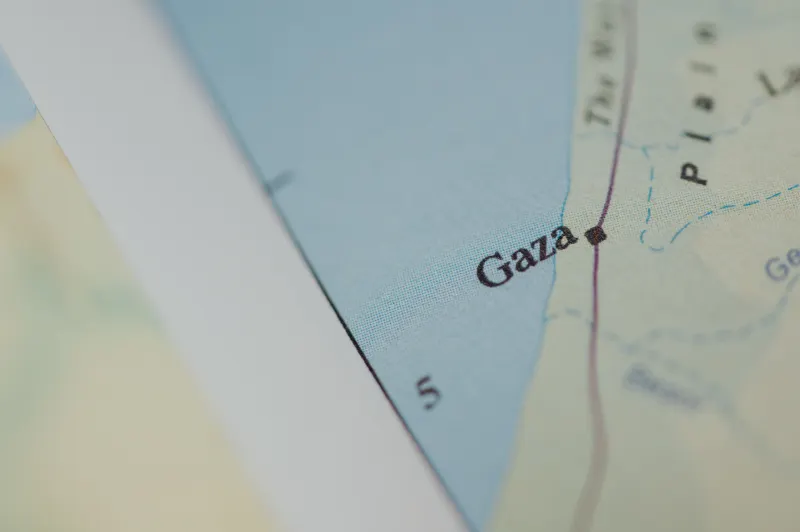Jewish and Palestinian students on campus mourned losses, anxiously awaited news from loved ones and braced for disputes on campus as the conflict between Hamas and Israel escalates.
Palestinian militant group Hamas led a surprise assault on Israel Saturday — the largest attack on Israeli territory since the 1973 Arab-Israeli War. Israeli Prime Minister Benjamin Netanyahu declared a state of war later that day, and the country’s defense minister said Israeli authorities would block deliveries of food, water and fuel.
In a speech on Tuesday condemning the attack on Israel, President Joe Biden referred to Hamas as a “terrorist organization… whose stated purpose for being is to kill Jews.” Biden said that Hamas had killed more than 1,000 civilians, including 14 Americans. At least 900 people have died in Gaza as of Tuesday night, according to a CNN report citing the Palestinian Ministry of Health.
As of Tuesday night, Hamas has reportedly taken over 150 people captive from Israel, in retaliation for Palestinians imprisoned by Israel. It has threatened to kill these hostages if Israeli airstrikes continue to hit the Gaza Strip.
“This weekend, like many of you, we followed with deep concern the devastating crisis in Israel and Palestine,” wrote Susie Brubaker-Cole, vice provost for student affairs, and Tiffany Steinwert, dean for religious and spiritual life, in Stanford’s statement to the community. “We have spent the past few days and continue now to collaborate with colleagues campuswide on supporting students.”
Multiple banners were hung on campus buildings over the weekend. One at Tresidder Memorial Union read, “The Illusion of Israel is Burning.” Another banner at the clock tower on Sunday read, “The Land Remembers Her People,” accompanied by a drawing of the Palestinian flag. The banners were taken down before Monday.
Brubaker-Cole and Steinwert wrote that the banners “do not appear to cross that legal boundary” to constitute hate speech, “but they do run afoul of the university’s viewpoint-neutral time, place and manner rules.”
Over the weekend, Hillel asked Stanford Public Safety to increase its periodic checks near its building, which is its protocol for whenever there is a “high-profile event impacting the Jewish community,” wrote rabbi Jessica Kirschner.
Hillel requested increased security “out of concern for what off-campus actors might choose to do,” Kirschner wrote.
Kirschner wrote that Hillel is the most visible Jewish building in the area: “There is unfortunately a long fact pattern of Jewish institutions being targeted for vandalism and violence, so we increase our vigilance at moments of vulnerability.” Several instances of antisemitic vandalism have been reported on campus in the past year.
Some Palestinian students expressed fears for their safety on campus, especially for those vocal about their beliefs. Ronnie Hafez ’25, who is Palestinian-American and has family in the West Bank, said that expressing pro-Palestine views at Stanford comes with fears of repercussions and doxxing.
“In the past, Palestine advocates have been labeled terrorist sympathizers or antisemitic just for having a Palestinian identity or supporting the self-determination of Palestinian peoples,” Hafez said.
Stanford Students for Justice in Palestine (SJP) expressed support for the self-determination of Palestinian people and wrote that they felt compelled to “address the recent and ongoing injustices” in a statement released on Saturday.
“Palestinians, like all peoples, have the legitimate right to resist occupation, apartheid, and systemic injustice,” SJP wrote. “At its core, this is about an oppressed population striving for equality, freedom and self-determination in the face of systemic subjugation.”
Some students feared for loved ones in Palestine. “It can feel very easy to be far removed from a conflict that’s happening thousands of miles away, but the reality for some students is that they’re just hoping their family will make it out alive,” Hafez said.
On Sunday evening, Hillel held a vigil at Meyer Green to honor lives that had already been lost to the fighting.
Hannah Levin ’25, a co-president of the Stanford Israel Association (SIA), said she encourages people to educate themselves about what’s happening in Israel and Gaza, and to “reach out to your Jewish and Israeli friends and family.”
“It’s especially hard when no one knows about this,” Levin said. “We’re really scared. I’m scared for my family and everyone is scared for their family. And we’re scared to even convey how scared we are because we were afraid of backlash for this.”
Andrei Mandelshtam ’25, another co-president of SIA, criticized some advocacy following news of the conflict. It was “extremely insensitive, extremely immoral and absolutely disgusting” for anyone to “be supporting the ‘martyrs’ that terrorized the Israeli civilian population,” Mandelshtam said.
Hafez, who is also a member of SJP, said, “We feel like the grief that we felt has gone unnoticed.” He criticized the profiling of pro-Palestinian students “as terrorist sympathizers.”
“SJP is not affiliated with Hamas,” said Hafez, who is also a member of SJP. He added that it sets a dangerous precedent “for Arab or Palestinian students to continually prove themselves or not have [themselves] affiliated with terrorism or with cheering on the death of Jews or Israelis.”
Hamza El Boudali ’22 M.S. ’24 wrote that “what’s happening in Gaza right now is really shocking, which is saying something given that we’ve become accustomed to Israel regularly committing war crimes over the years.”
“My heart goes out to Palestinian students on campus and their families,” El Boudali wrote.
Brubaker-Cole and Steinwert directed students to Hillel and the Markaz Resource Center for support.
This story was updated with Biden’s Monday message on the attacks.
A previous version of this article misstated the day Israel declared war. The Daily regrets this error.
